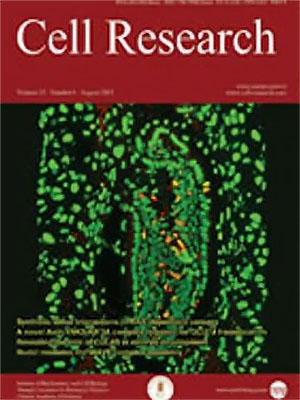
Volume 14, No 3, Jun 2004
ISSN: 1001-0602
EISSN: 1748-7838 2018
impact factor 17.848*
(Clarivate Analytics, 2019)
Volume 14 Issue 3, June 2004: 227-233
ORIGINAL ARTICLES
Differential activation of intra-S-phase checkpoint in response to tripchlorolide and its effects on DNA replication
Yan REN, Jia Rui WU
Laboratory of Molecular Cell Biology, Institute of Biochemistry and Cell Biology, Shanghai Institutes for Biological Sciences, Chinese Academy of Sciences, 320 Yueyang Road, Shanghai 200031, China.
Correspondence: Jia Rui WU(wujr@sibs.ac.cn )
DNA replication is tightly regulated during the S phase of the cell cycle, and the activation of the intra-S-phase checkpoint due to DNA damage usually results in arrest of DNA synthesis. However, the molecular details about the correlation between the checkpoint and regulation of DNA replication are still unclear. To investigate the connections between DNA replication and DNA damage checkpoint, a DNA-damage reagent, tripchlorolide, was applied to CHO (Chinese ovary hamster) cells at early- or middle-stages of the S phase. The early-S-phase treatment with TC significantly delayed the progression of the S phase and caused the phosphorylation of the Chk1 checkpoint protein, whereas the middle-S-phase treatment only slightly slowed down the progression of the S phase. Furthermore, the analysis of DNA replication patterns revealed that replication pattern II was greatly prolonged in the cells treated with the drug during the early-S phase, whereas the late-replication patterns of these cells were hardly detected, suggesting that the activation of the intra-S-phase checkpoint inhibits the late-origin firing of DNA replication. We conclude that cells at different stages of the S phase are differentially sensitive to the DNA-damage reagent, and the activation of the intra-S-phase checkpoint blocks the DNA replication progression in the late stage of S phase.
FULL TEXT | PDF
Browse 2018


